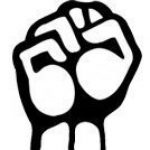Tag: israel
-
New Year Violence
Two nights after Jewish people celebrated the New Year, two violent incidents occurred which made me angrier than usual at the brutal behaviour of Israeli Jewish West Bank settlers, the Israeli police, and the Israeli racial state. On Friday 30 September, Jewish settlers at the West Bank settlement of Anatot brutally attacked a group of…
-
Re-thinking Israel-Palestine: Racial state, state of exception
Introduction: The dialectics of Israel-Palestine 2010 has been another eventful year in Israel-Palestine. First there was the debacle of the Gaza flotilla. Later on, Israeli police forces demolished the ‘unrecognised’ village of El Araqib three times. In Sheikh Jarrach, Silwan and Bil’in riot police keeps arresting unarmed demonstrators. In October, Israel legislated to obligate all…
-
To Gaza: When is self defence not self defence
Everyone who saw the brutal treatment of the passengers of the freedom flotilla attempting to break the blockade of Gaza, and heard the Israeli propaganda machine claiming this was done in ‘self defence’ should understand that this self justification has a long history. As an Israeli child, I grew up on myths of ‘self defence’…

You must be logged in to post a comment.